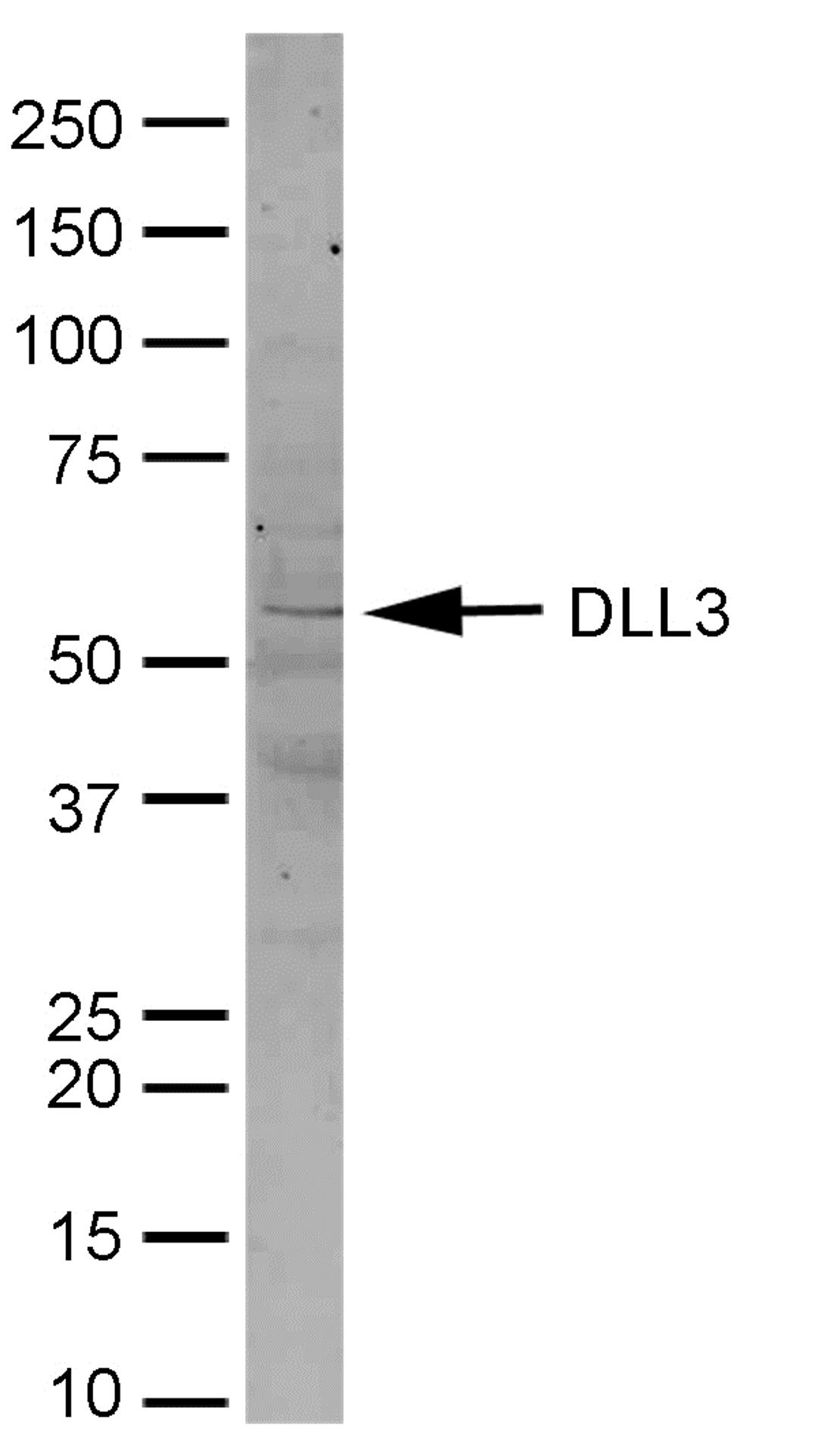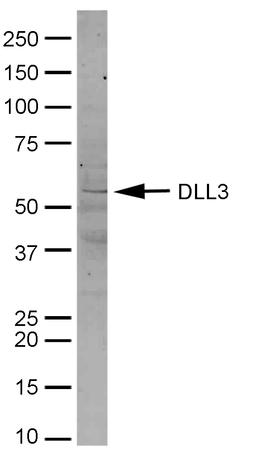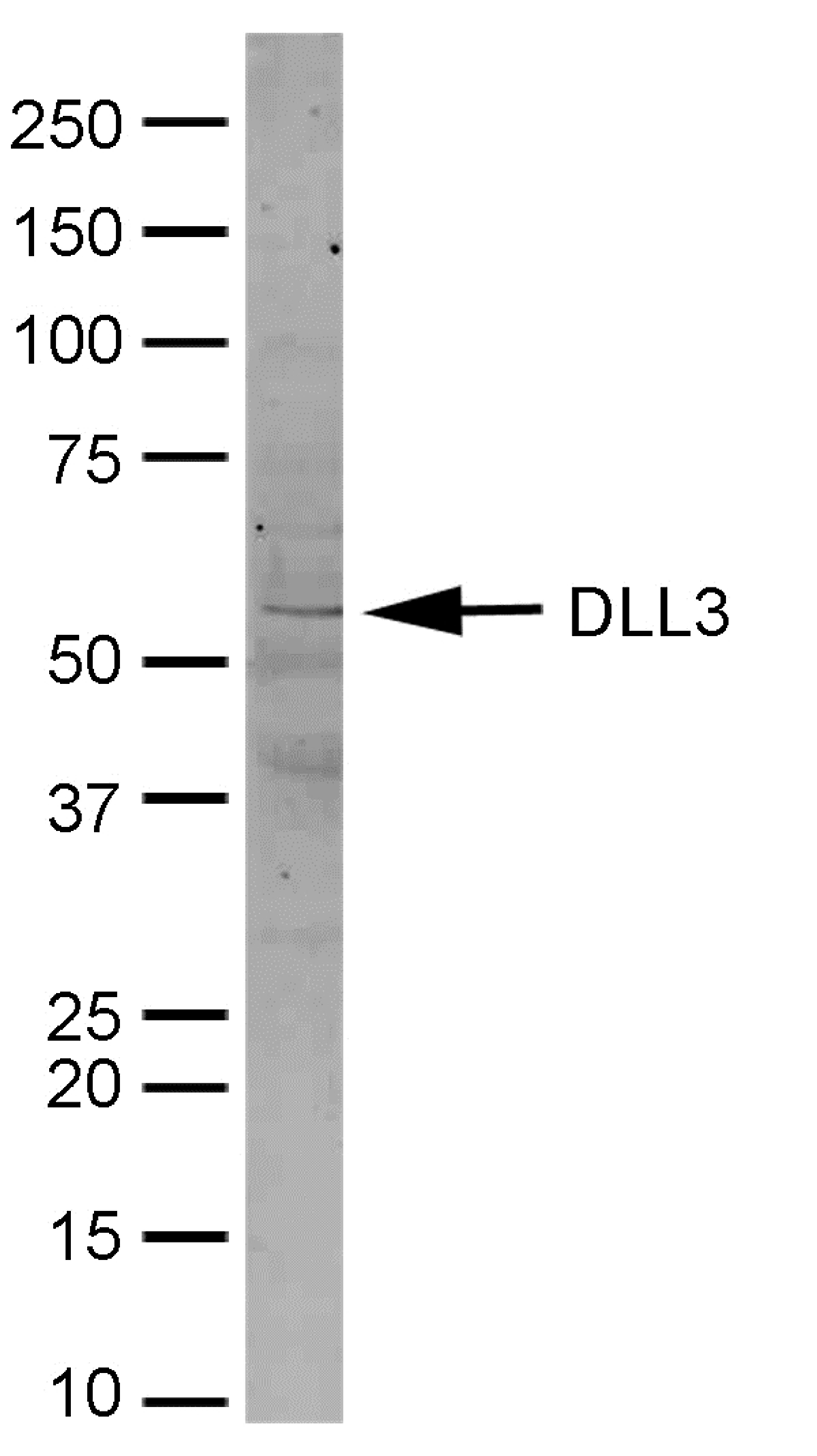RABBIT ANTI MOUSE DELTA-LIKE PROTEIN 3
Product Details
- Cat. No.
- AAM81
- Type
- Primary Antibody
- Clonality
- Polyclonal
- Host
- Rabbit

The supplier does not provide quotations for this antibody through SelectScience. You can search for similar antibodies in our Antibody Directory.
Description
Rabbit anti-mouse Delta-like protein 3 recognizes mouse Delta-like protein 3 (DLL3), one of the five major ligands of the Notch signaling pathway, which is activated through the binding of specific ligands to the Notch receptors Notch 1-4.The Notch signaling pathway is an evolutionarily conserved pathway in multi-cellular organisms, which is vital for cell-cell communication, important during fundamental developmental and physiological processes, including regulation of cell fate decisions during neuronal, cardiac and endocrine development, stem cell haematopoiesis, thymic T-cell development, and both tumour progression and suppression.Ligation of Notch receptors by their specific ligands, Jagged1 (CD339), Jagged2, Delta like-1 (DLL1), DLL3 and DLL4, on physically adjacent signal receiving cells, induces proteolysis of the receptors by ADAM-family metalloproteases and gamma-secretase complex, within the transmembrane domain, releasing the Notch intracellular domain (NICD) to translocate to the nucleus. Subsequent signal transduction then occurs through either the CSL-NICD-Mastermind complex cascade (canonical pathway), or NF-kappaB-NICD and CSL-NICD-Deltex complex signaling cascades (non-canonical pathway). The canonical pathway inhibits the differentiation of stem cells or progenitor cells, whilst the non-canonical pathway promotes differentiation. DLL3 is predominantly expressed in the neuroectoderm and paraxial mesoderm during embryogenesis, where it plays a role in somite segmentation, during early development. DLL3 acts as a regulator of Notch 1, as an inhibitor of primary neurogenesis, and studies in mice have linked DLL3-Notch signaling with liver regeneration, and developmental defects. In humans more than 25 mutations in the DLL3 gene are known to be responsible for the autosomal recessive skeletal malformation condition known as spondylocostal dysostosis type 1 (<a href="https://www.omim.org/entry/277300"tar
Biological Information
- Clonality: Polyclonal
- Host: Rabbit
- Reactivity: Human, Mouse
- Isotype: Polyclonal IgG
Handling
- Quantity: 0.1 mg
- Storage: +4ºC, -20ºC if preferred
- Buffer: Phosphate buffered saline, 0.09% Sodium Azide
Applications
- ELISA (ELISA)
- Western Blotting (WB)



